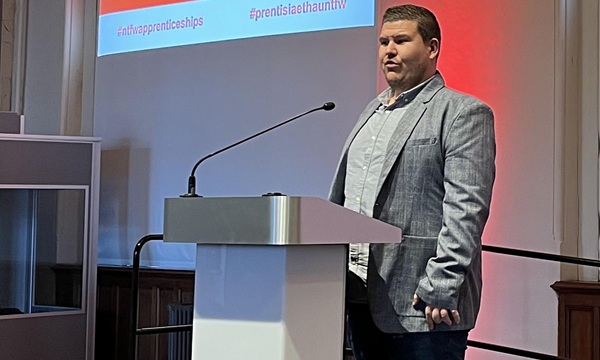The Home Office and NatWest have partnered to urge students to Stop! Think Fraud.
More than half of students (57%) have encountered or had money stolen by criminals , according to new data from NatWest’s Student Living Index. On average, young adults aged 18 to 24 are now having an average of £300 stolen by scammers in the past year.
The Fraud Minister is urging students to follow the UK Government’s Stop! Think Fraud campaign advice to ensure they are protected from scams, especially as university life brings new challenges.
Fraud Minister Lord Hanson said:
“Fraudsters prey on students finding their feet at university, and the risks have never been higher. We’re acting decisively to crack down on these criminals and protect young people, with our new expanding Fraud Strategy leading the way.
“I urge students to stay alert; anyone can be a victim. A little vigilance now could save you from a financial nightmare. For help and advice, search Stop! Think Fraud.”
Students in Kent are hit the hardest by scams, with the average victim having £436 stolen , followed by Lincolnshire at £355 and Greater London at £350.
The top scam hitting students is bank impersonation, with one in four targeted. In bank impersonation scams, criminals pose as genuine bank staff and contact victims via text messages, phone calls, or emails. If fraudsters succeed, they can steal funds and commit identity theft, causing victims not only financial loss but also significant disruption to their studies, wellbeing, and future plans.
Other common scams encountered include fake tax rebates, with fraudsters sending fake messages claiming a HMRC tax refund is just a click away. Meanwhile, investment scams promise sky-high returns but deliver empty pockets, with 13% of students also being impacted.
Nick Perkins, Director of Fraud Prevention at NatWest, said:
“We want students to have a positive and confident experience throughout their time in higher education. Our role is to support them by building their awareness of scams and helping them feel secure in managing their finances.
“Our advice to students before acting on any request, is to take a moment to think: does it feel rushed or too good to be true? Pause before spending your hard-earned money. If you're unsure, speak to someone you trust. And if you believe you've been scammed, please don’t feel ashamed – criminals are highly skilled at deception. What matters most is reporting it to your bank and accessing the support available to you.”
Mark Tierney, Chief Executive of Stop Scams UK, said:
“It’s deeply saddening that we need to warn students about fraud as they begin what should be an exciting chapter in their lives. We applaud the Home Office and NatWest for equipping students with the knowledge to protect themselves through the Stop! Think Fraud campaign.
“At Stop Scams UK, we believe the biggest win will come from preventing scammers from reaching students in the first place. That’s why we work with our 37 members—including NatWest—across banking, payments, tech and telecoms to shut down the routes fraudsters use to target the public. But scammers are wily, and until we can stop them entirely, our advice to students is simple: if something feels rushed, too good to be true, or just not quite right—pause, check, and don’t engage.”
Joe Woodcock, Head of Community and Safeguarding at The Student Room, said:
“Students should take a moment to pause before acting on unexpected messages or requests for money. If something feels rushed or too good to be true, it probably is. We’re proud to support Stop! Think Fraud in helping students stay alert, protect their finances, and look out for one another.”
National Union of Students President, Amira Campbell, said:
“The Stop! Think Fraud initiative is really important. Fraudsters often target students who are living independently for the first time.
“International students are also disproportionately targeted, with fraudsters taking advantage of the fact that they have moved to a new country and don’t know how all our housing and banking systems work.
“We are really pleased that the government is focused on tackling this issue and is providing guidance for students to spot fraud in advance.”
Practical Steps for Students
- By always taking a moment to Stop! Think Fraud you can help protect yourself.
- If you receive a call or message claiming to be someone from your bank or HMRC, always take time to stop and think if the request is genuine before handing over personal information.
- Check a request from your bank is genuine by contacting them via their official website or app or calling them using the number on your bank card or 159.
- Banks will never ask you to reveal personal information including your PIN, or passwords for online accounts. If in doubt, hang up the phone and call your bank directly.
- Check a request from HMRC is genuine by visiting HMRC phishing and scams: detailed information – GOV.UK
- If you’re unsure about a text claiming to be from HMRC forward it to 60599, or an email to phishing@hmrc.gov.uk. Report a tax scam phone call at GOV.UK Report suspicious HMRC emails, texts, social media accounts and phone calls – GOV.UK
- Contact your bank immediately if you’ve had money stolen, and report it to Action Fraud. In Scotland, contact the police on 101.
Be wary of letting someone use your bank account to move money, you could be helping criminals. It’s called money muling, and it’s illegal.












